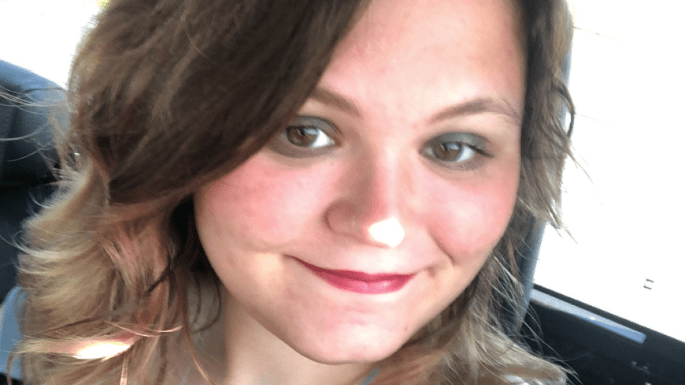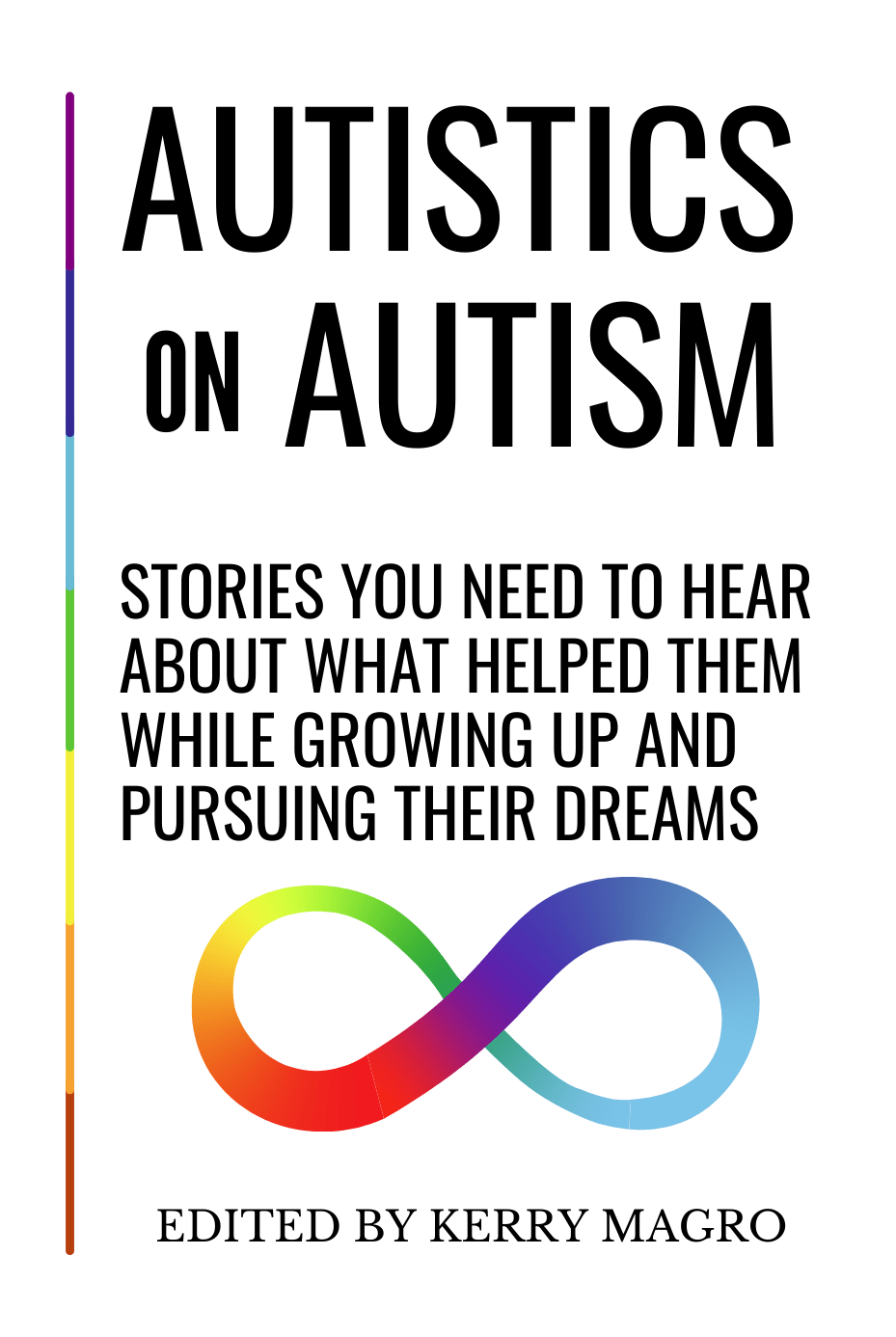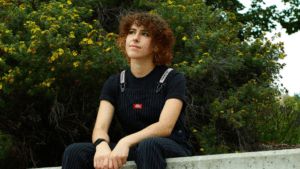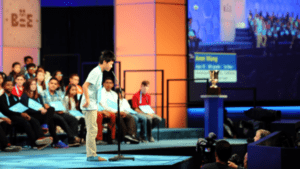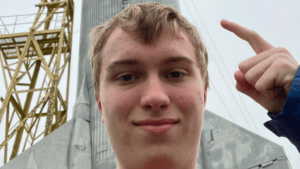This guest post is by Mckenna Chada, a young woman who was diagnosed with autism at 8 and plans to study graphic design at Iowa State University. Mckenna is applying for the Spring 2023 Making a Difference Autism Scholarship via the nonprofit KFM Making a Difference started by me, Kerry Magro. I was nonverbal till 2.5 and diagnosed with autism at 4, and you can read more about my organization here. Autistics on Autism: Stories You Need to Hear About What Helped Them While Growing Up and Pursuing Their Dreams, our nonprofit’s new book, was released on March 29, 2022, on Amazon here for our community to enjoy featuring the stories of 100 autistic adults.
When I was diagnosed with autism, I don’t remember my parents’ reactions. They couldn’t have been surprised, of course since they were the ones who took me in to get tested. I’m thankful that I had the opportunity to get screened AND diagnosed. With my diagnosis I was able to get accommodations in school which helped me succeed academically. People knowing you have autism can be really helpful. They’ll understand the reasons you react the way you do and will find ways to help you more effectively. Yet, that isn’t always the case. Sometimes, they’ll know you have autism and go out of their way to forget.
Third grade was my first year with a 504 plan. At the time, I didn’t realize I had one. All I really knew was that I would get extra help in math from a different teacher. She was kind, always understanding my difficulties with the subject. However, my regular teacher was not as kind. I would sit at my desk, looking at the math problem in front of me. It almost seemed like a foreign language, I couldn’t decipher it. Instead of asking questions, I would have a meltdown. They weren’t violent or loud, I’d just cry and cry. I was overwhelmed and struggling. What I needed was comfort and reassurance from my teacher. That wasn’t what I got. She yelled at me to stop crying and when I didn’t she threatened to send me to the principal’s office. She reacted with anger rather than understanding and that became what I expected from my teacher. It wasn’t a pleasant experience, but I’ve had many kind and understanding teachers.
Unfortunately, autism doesn’t just impact my academics or my social life, it impacts my home life. I’m the only person in my family who is autistic, at least from what I know. Due to this, my parents at times are not the most understanding of my problems. Sometimes, I do understand their point of view. I will get overwhelmed over something rather small, it doesn’t make sense to them. When I get upset, I go partially non-verbal and cannot speak so I can’t communicate until I’ve calmed down. It can be frustrating from an outside perspective, but that doesn’t mean their reactions don’t hurt me. When I was around ten years old, my parents were having fights almost every night. One night I was sitting in the dining room while my parents argued in the kitchen. During their argument, my father pointed to me and said he didn’t want an autistic child. Right in front of me. My mom yelled and screamed at him and I sat there trying to understand what I had done wrong. It didn’t make sense to me, why didn’t my dad want me? A child should never have to hear that, especially from their own father. That’s the day I realized autism was more than a disorder I had, it was something bad because from then on my dad would never call me autistic. He would say I had Aspergers or was different, but never would he call me autistic. It became a dirty word in his mind and for the longest time it was a dirty word in my mind, too.
Unsurprisingly, I had trouble making friends in school. I was either bullied or ignored, but I did have a couple of friends. To those friends I am forever grateful because they were the reason I made friends in middle school. They introduced me to people I could never talk to on my own. I made more friends than my younger self thought possible, but it didn’t mean I was free from mistreatment. In middle school kids are a lot meaner and nastier, however I was a quiet kid. I didn’t draw attention to myself and for the most part I would be left alone. However, there was a time where I caught the attention of four classmates. I knew each and every one of them, but that’s because we had gone to school together for our whole lives; we weren’t friends. I had been sitting in class, listening to music and drawing. I had looked over my computer and saw those four kids looking at me and laughing. I didn’t understand the reason, but I was so sure they were making fun of me. Overwhelmed and confused by their laughter, I started to cry. Not just crying, I was sobbing. Then they started throwing things at me. They had realized that they were upsetting me and they wanted to relish in it. Scraps of paper, pieces of a broken pencil, all being thrown at me. Despite wanting to get out of there, I couldn’t move. I was frozen and unmoving. Once the class ended, I had tried to gather myself together and went up to the teacher who didn’t see what had happened. Nothing happened, they didn’t even get a talking to. They took pride in upsetting someone who at the time couldn’t defend themselves. When I tried to speak, the words would catch in my throat and I was never able to confront them for what they did.
I’ve been alive for nearly 18 years and the traumas I’ve faced because people don’t understand autistic people is very saddening. People will assume when I’m overwhelmed, overstimulated, or having a meltdown that I can just get out of that mental state when it’s really not that easy. It’s not always their fault, our society focuses on neurotypical able-bodied people. Kids aren’t taught the complexities that come with different mental disorders. Then those kids grow up and they think autistic people are just dramatic because they don’t understand how they feel. We are considered the problem, children that are a curse on their parents. However, we aren’t the problem when we try to communicate and those around us don’t want to listen. The problem isn’t our existence, it’s the lack of understanding and one day I hope to see people learn.
Follow my journey on Facebook, my Facebook Fan Page, Tiktok, Youtube & Instagram.
My name is Kerry Magro, a professional speaker and best-selling author who is also on the autism spectrum. I started the nonprofit KFM Making a Difference in 2011 to help students with autism receive scholarship aid to pursue post-secondary education. Help support me so I can continue to help students with autism go to college by making a tax-deductible donation to our nonprofit here.
Autistics on Autism: Stories You Need to Hear About What Helped Them While Growing Up and Pursuing Their Dreams was released on March 29, 2022 on Amazon here for our community to enjoy featuring the stories of 100 autistic adults. 100% of the proceeds from this book will go back to our nonprofit to support initiatives like our autism scholarship program. In addition, this autistic adult’s essay you just read will be featured in a future volume of this book as we plan on making this into a series of books on autistic adults.

